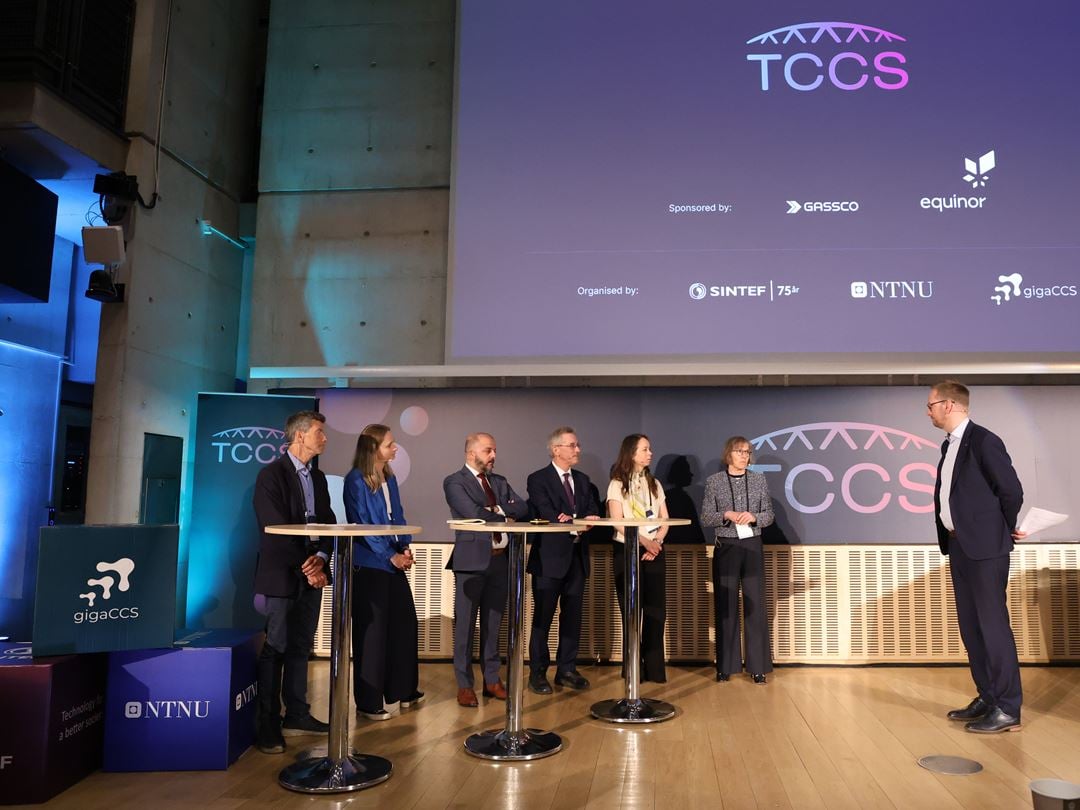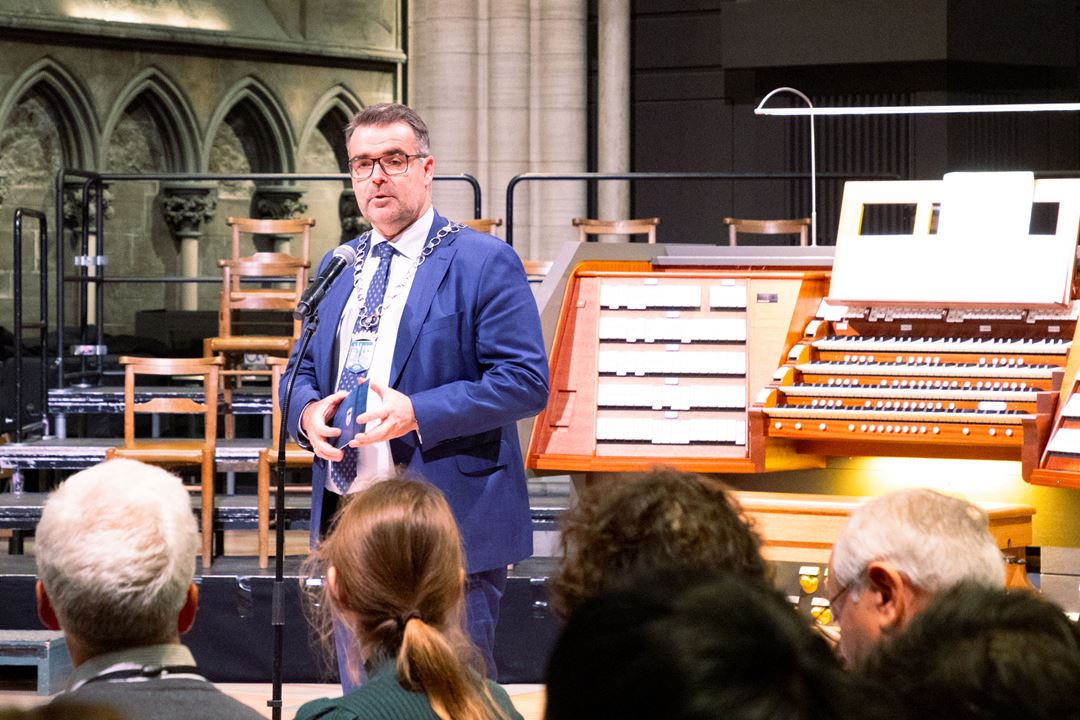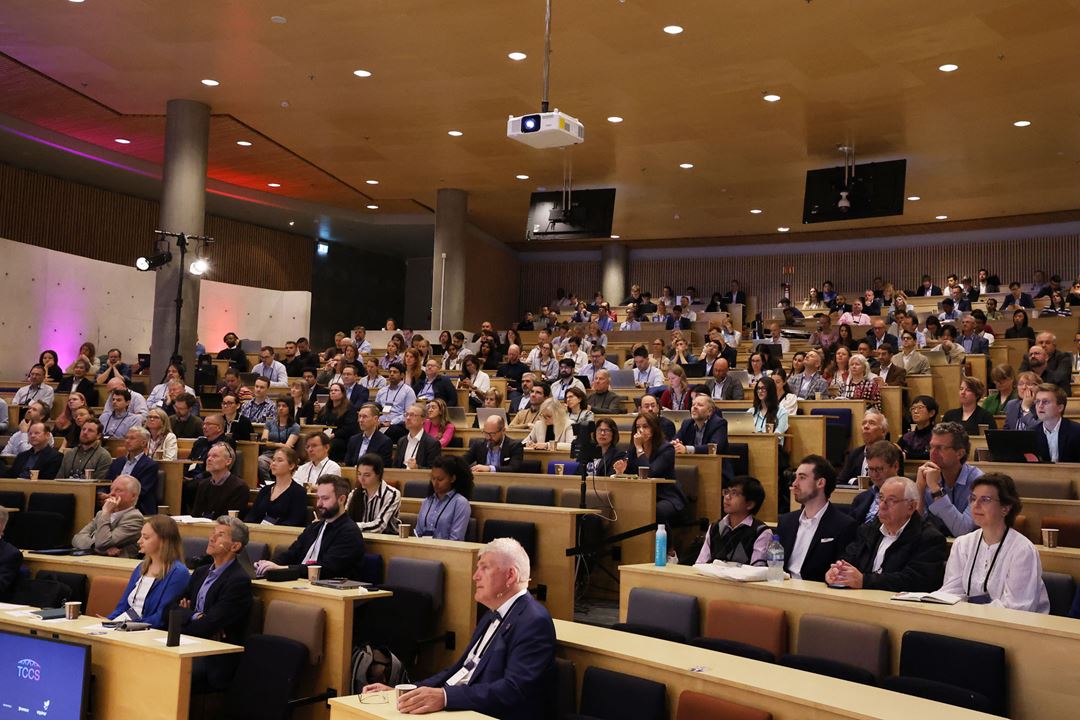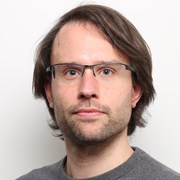22 years of high-quality scientific presentations and discussions on CCS
Since its launch in 2003, this biennial conference has become a leading international forum for scientific progress in CCS. TCCS-13 brought together 484 researchers, academics, industry representatives and policymakers for three days of high-quality presentations, discussions and interdisciplinary exchanges. The programme covered developments and challenges across the entire CCS value chain, featuring 150 oral presentations across six parallel sessions, 123 posters and eight keynote presentations.

"Being in a research environment, we know that we're working towards the right things; we know we need CCS, as well as other decarbonisation and renewable technologies, to address the climate and nature crisis," said Nils Røkke, executive vice president of sustainability at SINTEF and chair of TCCS.
"Research can carry us through hypes and let-downs to ensure progress towards our climate goals - but we need to accelerate on the road to CCS deployment, and TCCS really puts the pedal to the metal."
Longship: from research investment to full-scale implementation
TCCS-13 coincided with a historic milestone for CCS in Norway. While the conference was underway, the world's first CO2 capture facility on a cement plant was officially opened at Heidelberg Material's cement plant in Brevik, Norway. This facility is one of the two capture parts of Longship, Norway's first full-scale CCS value chain project.
While many factors have contributed to the realisation of this project, Norway's sustained public investment in CCS research and development has played a significant role. The Norwegian Research Council's FME programme is an example of this, uniting research, industry and government partners with a common goal of turning research into implementation.
"For CCS to become an effective climate mitigation tool, we need to bring down costs. To make that happen, we need scale, technology development and an optimised value chain. That is why support for research and development is important. Ideas do not reach the market in isolation. TCCS plays a vital role as a meeting place to share knowledge and develop ideas," said Norwegian Minister of Energy Terje Aasland in his video greeting to the conference.
Trondheim as a nucleus for pioneering CCS research
Trondheim's connection to CCS research dates back to its inception as a decarbonisation technology. It was here in 1986 that SINTEF Research Scientist Erik Lindeberg first developed the idea of using a technology that was originally intended for enhanced oil recovery to reduce CO2 emissions.
Today, the city continues to be a nucleus for pioneering CCS research, as it is home to several of Norway's most prominent research institutions and groups in the field. This includes TCCS' three organising partners: SINTEF, the Norwegian University of Science and Technology (NTNU), and gigaCCS: a Centre for Environment-friendly Energy Research (FME) on CCS, coordinated by SINTEF, with NTNU as a founding research partner.

The prestige, strength and vision of these three partners have played a significant role in shaping the character and impact of TCCS as a globally leading scientific conference.
TCCS-13 shows that science-based collaboration is key to achieving our climate goals
"In the race to decarbonisation, time is of the essence. TCCS has proven that collaboration based on the latest, high-quality research is fundamental for achieving our climate goals," said Nils Røkke.
"With Trondheim's role as Norway's technology and knowledge capital at its core, the conference continues to shape the future of CCS, with research that leads to real-world change. I'm looking forward to seeing you all again in two years at TCCS-14."



